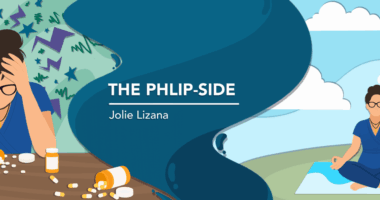We need better access to healthcare in the US
Everyone should have affordable healthcare options

Over the past 19 years, amid the challenges of managing a rare disease called pulmonary hypertension (PH), I’ve had countless encounters with doctors. As I’ve navigated the intricate landscape of chronic kidney disease, anemia, and various other health conditions, keeping track of all the specialists I consult has become a juggling act.
Besides the doctor appointments, dealing with health insurance has been quite a learning experience. It’s no walk in the park. It takes extra time and energy and leads to frustration and even tears. It’s not a secret that our national healthcare system in the U.S. could use some improvements. We push through because our health is worth it!
As we enter a busy political season, following are a few things I’d like to share with government officials and medical providers.
Healthcare should be accessible to all patients
I know people in the PH community who don’t have health insurance because it’s often tied to full-time work or a spouse’s benefits. What happens to these people when their careers end or they can’t continue to work because of their rare disease? What about single people without a working spouse? Marriages end, too, so these people often go without coverage and care.
It shouldn’t be like this. Everyone should have affordable healthcare options without high deductibles, increased premiums, or insurance connected to a job or marriage.
More rare disease patients should be part of the healthcare decision-making process. We want to be included and sit at the table to offer feedback on improving healthcare. Allow time for us to share our personal stories and experiences with you.
You’ll never understand the energy we spend and the frustrations we experience while managing our care if you don’t invite us to the conversation. Connecting these stories to faces and people can offer a more accurate picture of these types of experiences.
Equally important is investing in research and treatments for our rare diseases, which would give us a chance at better outcomes and healthier lives. More funding is needed for clinical trials for new treatments that target our rare conditions, leading to more promising results.
Many of us with rare diseases struggle with the high cost of medications, medical procedures, and other treatments. It can be overwhelming and stressful to navigate complex insurance policies and decipher what is covered and what isn’t. Healthcare costs need to be more transparent so that patients know what they’re paying for and why.
Take patients’ concerns seriously. Too often, symptoms are dismissed and patients are overlooked and undiagnosed. This is so frustrating. Although I’ve experienced this several times, I’m grateful it didn’t take years for my PH diagnosis. Others go years without an accurate diagnosis.
Doctors, please listen to your patients. We are the experts of our own bodies. Stop dismissing symptoms so quickly. If you’re uncertain about a patient’s symptoms, don’t be afraid to say you don’t know. Instead, offer a referral to someone who can help.
Education about rare diseases for healthcare professionals
Doctors often need more knowledge and understanding of rare conditions because these conditions are less prevalent than common illnesses. This can lead to misdiagnosis, delayed treatment, or even a dismissal of symptoms by healthcare professionals. By educating all healthcare team members about rare diseases, we can ensure that patients receive proper care and attention.
Let’s gather around the table and work together for improved quality of life within the PH and broader rare disease communities. We need our collective voices to advocate for ourselves and our loved ones. We can share our experiences and insights to create meaningful change by coming together.
Note: Pulmonary Hypertension News is strictly a news and information website about the disease. It does not provide medical advice, diagnosis, or treatment. This content is not intended to be a substitute for professional medical advice, diagnosis, or treatment. Always seek the advice of your physician or other qualified health provider with any questions you may have regarding a medical condition. Never disregard professional medical advice or delay in seeking it because of something you have read on this website. The opinions expressed in this column are not those of Pulmonary Hypertension News or its parent company, Bionews, and are intended to spark discussion about issues pertaining to pulmonary hypertension.









MamaBear007
Thank you for writing this article, Jen. Before his PTE surgery, my son was terrified that he'd lose his job; he knew without the insurance coverage that came with the job, he wouldn't survive. Those two years after the PH diagnosis (and before the CTEPH diagnosis), he was incredibly ill, and during those two years, he probably spent at least two months total during the four required hospital stays. It sure took its toll on him. He knew the local store manager would hold his job open for him, but he was unsure about corporate. Even though the PTE surgery vastly improved his health, and he hasn't had to take any more time off except for doctor's appointments, he still has PTSD from the stress of it all, even though his surgery was more than 6 years ago.
My heart feels for all those who have to deal with this on a permanent basis. I wish I could send out a big huge comforting group hug to all of you.
Jen Cueva
I bet your son was pretty scared about losing his job, especially before his PTE surgery, huh, MamaBear? It's such a relief that he could keep his job even with the hospital stays. I remember you mentioned how supportive his workplace was during his surgery and all - that's such a blessing. Though, I can totally see that PTSD might sneak up on him every now and then. Even though his PTE surgery improved his health big time, he probably gets a bit anxious anytime he catches a sniffle or something.
And you're totally right, nobody should have to stress about losing their insurance when we're already battling something way bigger with our health. Your e-hugs are totally felt through the screen, my dear friend. You're such a kind soul and I'm so grateful for you and your never-ending support. Take care of yourself and don't forget to check in and let us know what you've been up to to keep busy.